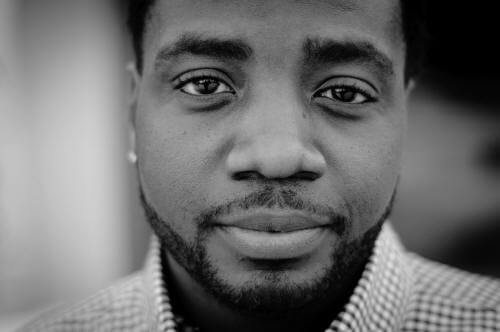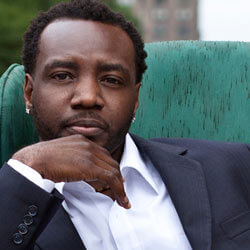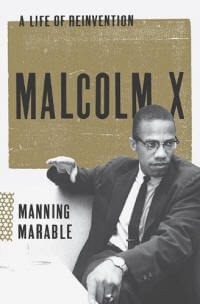Alrick Brown - The "Kinyarwanda" Interview - 2011
Alrick Brown The "Kinyarwanda" Interview

With an MFA from NYU’s Tisch School of the Arts, Alrick Brown is a filmmaker
and teacher who has found his calling writing, directing and producing narrative
films and documentaries focusing on social issues affecting the world at large.
For over two years, he served as a Peace Corps volunteer in Cote d’Ivoire.
Alrick’s interactions with the indigenous people in the village where he lived,
as well as his overall experiences in West Africa, have informed his creative
expression, an expression first fostered by his birth in Kingston, Jamaica, and
his upbringing in Plainfield, New Jersey. A fluent French speaker, he graduated
from Rutgers University with a BA in English and a Masters degree in Education.
Since then, he has devoted his energy to changing the world by giving a voice to
the voiceless by telling stories that otherwise would not be told. Alrick’s
collective work has been screened in countless film festivals, and received
numerous awards, including HBO’s Life through Your Lens Emerging Filmmaker Award
for the critically-acclaimed documentary Death of Two Sons.
In 2004 he was one of four NYU students featured in the IFC Documentary series
Film School, produced by Academy Award-nominee Nannette Burstein. And in 2007,
he addressed the Motion Picture Association of America on C-SPAN. Here, he talks
about his new film, Kinyarwanda, which won the Audience Award in the World
Cinema category at the Sundance Film Festival earlier this year.
Alrick Brown -
The "Kinyarwanda" Interview
with Kam Williams
 Kam Williams: Hey Alrick, thanks for the time. Do you remember ever
meeting me?
Kam Williams: Hey Alrick, thanks for the time. Do you remember ever
meeting me?
Alrick Brown: I do recognize your name. Where’d we meet?
KW: It was in Princeton, New Jersey a few years ago when you were working on
your film school classmate Sean Welski’s student film.
AB: Oh my goodness! [Laughs] Cool, man! I kept asking myself: Why is this
name so familiar?
KW: Well, it certainly looks like things have taken off for you since
Kinyarwanda won the Audience Award at Sundance. How does that feel?
AB: It’s all an illusion. I’m still broke, man. I’ll answer that question,
when I get out of debt.
KW: When did you get your degree from NYU?
AB: I officially graduated in 2008, when I turned in my thesis.
KW: Well, I really enjoyed
Kinyarwanda. What inspired you to make a movie
about the genocide in Rwanda?
AB: Thank you very much. The film came about because one of my Peace Corps
buddies ended up in Rwanda after I left West Africa to go to NYU. He
introduced me to Ishmael Ntihabose, a genocide survivor and aspiring
filmmaker. Ishmael called me because he got a grant to make a movie about
the Muslim influence on the peace process in Rwanda, which I hadn’t heard
about before. So, he’s the picture’s executive producer. Then, when I
arrived in Rwanda, I heard so many amazing stories of survival that I
suggested to Ishmael the idea of an ensemble drama with intertwining tales,
ala Crash, but with all the characters eventually meeting at a mosque. He
went for it, and we shot it in 16 days.
KW: Had many of your cast members been touched by the genocide?
AB: Absolutely! Most of our crew and cast members were affected by it in
some way. That added to the picture’s authenticity.
KW: What’s Rwanda like now? Is there still evidence of tensions between the
Hutus and Tutsis?
AB: The country has turned itself around 180 degrees. In fact, the terms
“Hutus” and “Tutsis” aren’t even used anymore. That’s not to say everything
is perfect. Outside of Rwanda, there are still some people in exile who
don’t believe in the reconciliation process who still hold animosities.
KW: I was surprised to learn from the movie that there are also Pygmies in
Rwanda. What % of the population is comprised of the Twa people?
AB: Only around 3% or so. The Hutus were around 85%, and the Tutsis around
12%. And the number of Muslims in the country has increased from 8 to 12%
KW: Why so?
AB: Many people converted to Islam after seeing the good things the Muslims
did during the conflict, because they felt that the church had let them
down.
KW: Did Rwanda hold truth and reconciliation hearing like they did in South
Africa after Apartheid?
AB: Yes, they had truth and reconciliation hearings, as well as re-education
programs for the perpetrators. And the country implemented a new vision of
itself via songs of unity and forgiveness.
KW: I was surprised to see guns in the movie. I thought all the killing had
been done with machetes.
AB: No, soldiers and a lot of the more powerful guerilla leaders had guns,
although most of the common people wielded machetes.
KW: How did you figure out a way to humanize so many characters, especially
in a story unfolding in the midst of a massacre?
AB: I know a very personal Africa, that isn’t National Geographic. So, as a
filmmaker, I was determined to show the truth that I know that we rarely get
to see. I knew that my foundation was going to be the intimacy of people’s
lives.
KW: What made you want to join the Peace Corps and venture to Africa in the
first place?
AB: Believe it or not, I saw an episode of The X-Files in which they found a
UFO that had landed in the Ivory Coast. I saw that as a sign. And I also
wanted an opportunity to travel and see the world.
KW: Is there any question no one ever asks you, that you wish someone would?
AB: Yeah, how much money do you need for your next film? [LOL]
 KW: How much do you need?
KW: How much do you need?
AB: Probably about $3 million. Hopefully, Kinyarwanda will show people what
I’m capable of doing on a small budget.
KW: The Tasha Smith question: Are you ever afraid?
AB: I don’t think I’m ever afraid, but I doubt myself often. Because of that
doubt, I constantly strive to make myself better.
KW: The Columbus Short question: Are you happy?
AB: That’s a good question, Kam. I’m proud, but I’m not happy, because the
debt is stifling, the work is intense, I miss my family tremendously, and I
don’t have anyone to share this journey with. Sometimes, I feel very alone.
KW: The Teri Emerson question: When was the last time you had a good laugh?
AB: [Chuckles] About a half-hour ago. I’m trying to enjoy this journey as
much as I can.
KW: What is your guiltiest pleasure?
AB: [LOL] I have a lot of those, man. Sex… Haagen Dazs strawberry ice cream…
people watching… and writing a good scene. I can stay high for weeks after
writing something that I love.
 Malcolm X: A Life of Reinvention Click to order via Amazon By Manning Marable Read an ALBC.com Book Review |
AB: The Manning Marable biography of Malcolm X.
KW: The music maven Heather Covington question: What was the last song you heard?
AB: A song called The Waitress by a folksinger named Jonathan Bird.
KW: What is your favorite dish to cook?
AB: My lobster bisque and my seafood bisque are both pretty badass.
KW: When you look in the mirror, what do you see?
AB: I do look in the mirror frequently. But I look past the physical and I feel proud of what I see, because I know where my heart is and the struggles I’ve been through to be able to stand where I’m standing.
KW: If you could have one wish instantly granted, what would that be for?
AB: If I answered that question it would be a lie, because I couldn’t tell you the truth.
KW: The Ling-Ju Yen question: What is your earliest childhood memory?
AB: Waking up from a nightmare at about 2 or 3 years of age in Jamaica, and hearing a woman screaming outside of the house.
KW: The Judyth Piazza question: What key quality do you believe all successful people share?
AB: Persistence and discipline. Without those two, you have nothing, no matter how talented you are.
KW: Dante Lee, author of "Black Business Secrets", asks: What was the best business decision you ever made, and what was the worst?
AB: My best business decision was becoming a writer as well as a director, and learning all aspects of the filmmaking craft. My worst business decision was licensing music that I don’t own.
KW: The Sanaa Lathan question: What excites you?
AB: Storytelling. Nothing gets me more juiced up than having an impact on people.
KW: The Tavis Smiley question: How do you want to be remembered?
AB: I want people to know that I tried.
KW: Thanks again, Alrick, and best of luck with Kinyarwanda.
AB: Thank you so much, Kam, I really appreciate it.

